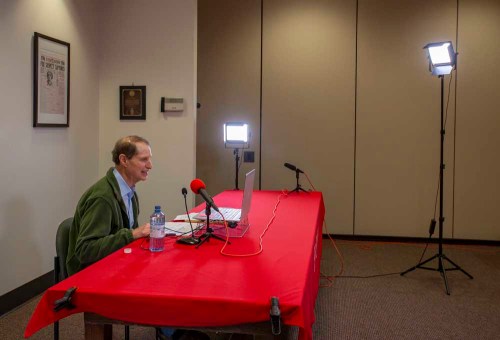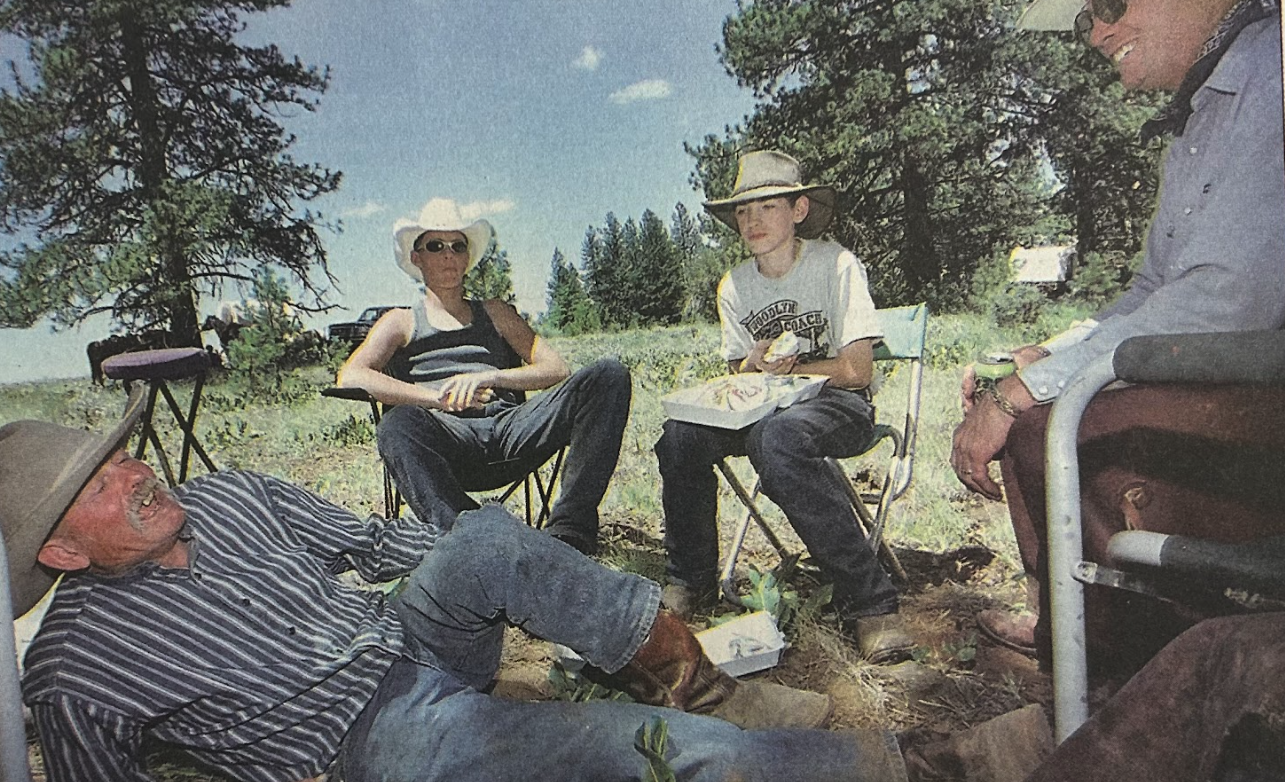Wyden talks infrastructure, forest management at Eastern Oregon town hall
Published 2:00 pm Friday, October 16, 2020

- Sen. Ron Wyden speaks during a virtual town hall at the East Oregonian in Pendleton on Wednesday, Oct. 14, 2020. The town hall, held virtually by Town Hall Project, allowed residents of Umatilla, Union, Morrow and Wallowa counties to pose their questions to the senator.
PENDLETON — Infrastructure and forest management were among the primary topics of concern during a Wednesday, Oct. 14, virtual town hall held by Sen. Ron Wyden for Eastern Oregon residents.
Nick Powers, of Enterprise, opened the meeting by expressing concerns about broadband infrastructure in rural Eastern Oregon and the unusually high load placed on systems due to remote learning, telehealth and working from home as a result of the COVID-19 pandemic.
“The fact is we can’t have big league quality of life in rural Oregon with little league connectivity,” Wyden said.
Wyden cited the Move America Act as a primary piece of legislation in dealing with ailing or insufficient infrastructure issues, such as rural broadband. The bill, introduced by Wyden and Sen. John Hoeven, R-North Dakota, in 2019, would allow tax-exempt bonds and tax credits to support infrastructure projects, such as airports, railroads, flood diversions and rural broadband.
“In 2021, probably one of the very first bills will be expanding infrastructure,” said Wyden. “I’m going to make sure it includes broadband and opportunities to expand education and health care.”
Fuji Kreider, a founder and board member of the La Grande-based Stop B2H Coalition, took the opportunity to discuss renewable energy infrastructure and forest management as they relate to the proposed Boardman to Hemingway transmission line. She asserted that the proposed 500-kilovolt B2H transmission line from Boardman to Hemingway, Idaho, would pose severe fire risk to the region.
Wyden emphasized his support of renewable energy infrastructure, citing his intent to repeal dozens of federal tax breaks for fossil fuels.
“One of my first bills will be to take those 44 energy bills that are really monuments to yesteryear — those energy tax laws — and throw them all in the garbage can and substitute the ones for clean energy and an alternative vision for Oregon and the country,” Wyden said.
In addition to renewable energy infrastructure, Wyden added that a combination of smart forest management and climate science are needed to help mitigate wildfire risks. Wyden cited the National Prescribed Fire Act that he has before Congress as a key piece of legislation in the prevention of catastrophic wildfires.
Introduced in September, the legislation would support pre-fire season controlled burns as a way to help reduce hazardous fuels on the forest floor and reduce the severity of wildfires.
“Some people say the issue is all forest management or climate science,” he said. “I think the two are very much intertwined, smart forestry policy in rural Oregon is smart climate science policy.”
Wyden added that he feels the recent wildfires throughout Oregon and other states have opened eyes to the severity of threat fire poses to communities.
“These last few months have really been transformative in a lot of respects,” he said. “People night after night — for weeks — tragically saw how close fire was getting to population centers.”
In addition to fire concerns, concerns over the handing of coronavirus relief funds were raised by Hermiston Mayor David Drotzmann, who said he felt as though future rounds of funding should be distributed directly to local communities and counties rather than going through the state.
“We feel like local control is the best control and we know what our communities need the best,” Drotzmann said. “Having those resources here on the ground that we can implement is extremely helpful.”
Wyden added that while he would like to see a way to better direct money, he did not want to see the return of senators earmarking money for specific locals, a practice he referred to as a “porkfest.”
“There has got to be a way to get more flexibility for local officials to be able to directly support services that they decide are priorities and not have that money funneled off,” he said.
Umatilla County Commissioner George Murdock echoed Drotzmann’s concerns during a chance to speak later in the town hall, adding that he felt money was disproportionately distributed to counties on the west side of the state adding to what he called the disenfranchisement of Eastern Oregonians.
Murdock followed up on his concerns of disenfranchisement by asking about the possibility of a one-party dominance in the federal government, something he compared to Oregon’s current political distribution, and finding ways to work together across the political spectrum.
“Isn’t there a way that we can move back towards the middle where both sides can get into the conversation with civility and statesmanship?” said Murdock.
Wyden explained how he would like to see more bipartisanship and offered up several examples of recent legislation, including a bill controlling prescription drug prices, that have bridged party lines.
“Everybody knows that I’m always looking for ways to produce what I call principled bipartisanship,” said Wyden. “Bipartisanship isn’t just about taking everybody’s crummy ideas, it’s about trying to find good and practical ideas.”
Other topics covered in the virtual town hall included access to telehealth opportunities and road and city infrastructure issues. A full recording of the the town hall is available on the East Oregonian‘s Facebook page.






